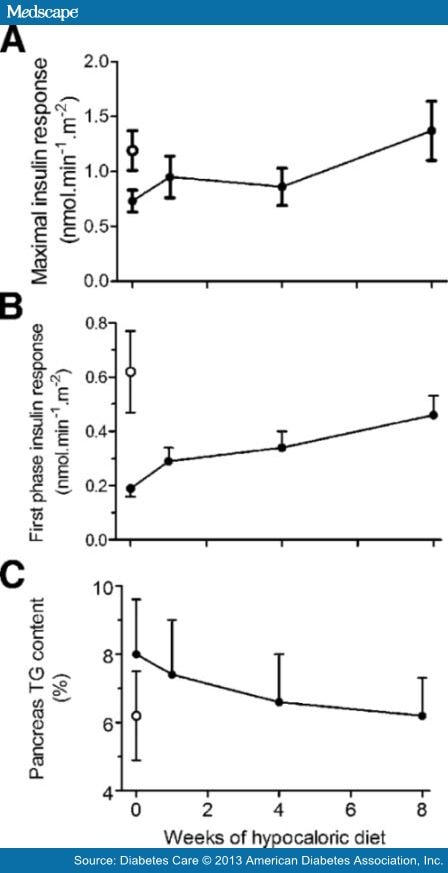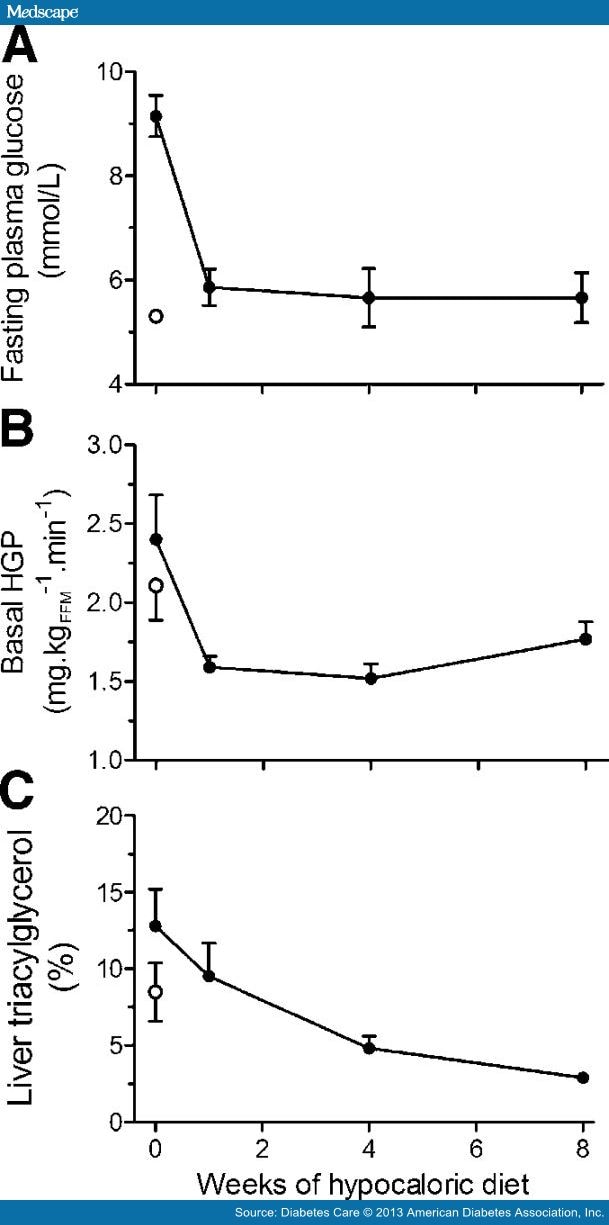Lurch
Well-Known Member
- Relationship to Diabetes
- Type 2
Just watched last night's Inside Out South West on iplayer (not aired in these parts) that included a bit (very short bit) on David Fitzgerald of the BBC doing the Newcastle Uni 600 kcal diet for 10 days. (I heard about the prog somewhere on here yesterday). Here's the iplayer link:
http://www.bbc.co.uk/iplayer/episode/b03nxjp2/Inside_Out_South_West_06_01_2014/
David's diet wasn't run by Newcastle Uni so seems the gospel's spreading that T2 can be reversed, but not 'cured' as they take care to say. In 10 days he lost 7 kilos, achieved fasting BS in the fours, and saw a three point fall in his A1C. The brain alone needs 600 kcals a day so the diet leaves nothing for the rest of the body!
I thought I was doing well on my self-created 11-1200 kcal intake because I've lost 11 kilos in 46 days. Paltry by comparison to David, but I'd never manage that 600 cal diet. I've seen only one under 5 fasting level so far, more usually 5.3 to 5.8. Since DX I've let my meter dictate my carb intake - 70g a day. Prof Jeff Volek (Art & Science of Low Carb Living etc) says an individual can be in ketosis at 70g CHO, and Jenny Ruhl's calculator certainly seems to think so, but I haven't bought urine strips to test if I am as it wasn't my plan to go ketogenic.
What interests me very greatly is whether the amazing results of the short VLCD can be achieved by a steadier decrease in weight? Prof Taylor says a weight loss of 15 kilos in 8 weeks should banish pancreatic and liver fat, which he now holds to be the reversal key, but I wonder if that time line is critical to the success or whether a slower reduction will get there just the same? I'm noticing that visceral fat is more reluctant to shift even while the shoulders are getting bony for the first time in many years.
Sorry to ramble but all the evidence tells me T2s have to act sooner than later after DX and whereas I can't face a 600 kcal diet, I'm hoping a more measured approach will still do the trick of reversing the beast. Can't see a doctor (if/when i see one) encouraging me to go ketogenic so it'll have to be my decision.
http://www.bbc.co.uk/iplayer/episode/b03nxjp2/Inside_Out_South_West_06_01_2014/
David's diet wasn't run by Newcastle Uni so seems the gospel's spreading that T2 can be reversed, but not 'cured' as they take care to say. In 10 days he lost 7 kilos, achieved fasting BS in the fours, and saw a three point fall in his A1C. The brain alone needs 600 kcals a day so the diet leaves nothing for the rest of the body!
I thought I was doing well on my self-created 11-1200 kcal intake because I've lost 11 kilos in 46 days. Paltry by comparison to David, but I'd never manage that 600 cal diet. I've seen only one under 5 fasting level so far, more usually 5.3 to 5.8. Since DX I've let my meter dictate my carb intake - 70g a day. Prof Jeff Volek (Art & Science of Low Carb Living etc) says an individual can be in ketosis at 70g CHO, and Jenny Ruhl's calculator certainly seems to think so, but I haven't bought urine strips to test if I am as it wasn't my plan to go ketogenic.
What interests me very greatly is whether the amazing results of the short VLCD can be achieved by a steadier decrease in weight? Prof Taylor says a weight loss of 15 kilos in 8 weeks should banish pancreatic and liver fat, which he now holds to be the reversal key, but I wonder if that time line is critical to the success or whether a slower reduction will get there just the same? I'm noticing that visceral fat is more reluctant to shift even while the shoulders are getting bony for the first time in many years.
Sorry to ramble but all the evidence tells me T2s have to act sooner than later after DX and whereas I can't face a 600 kcal diet, I'm hoping a more measured approach will still do the trick of reversing the beast. Can't see a doctor (if/when i see one) encouraging me to go ketogenic so it'll have to be my decision.


